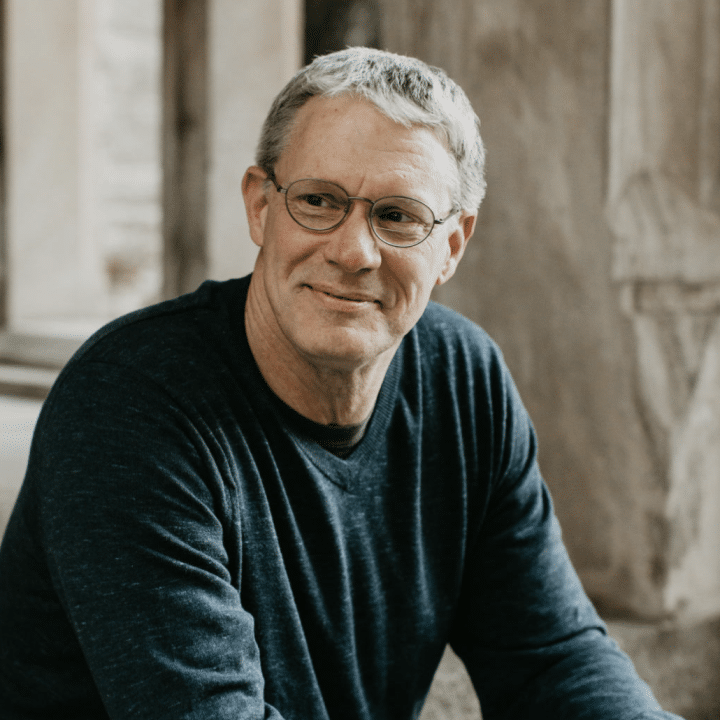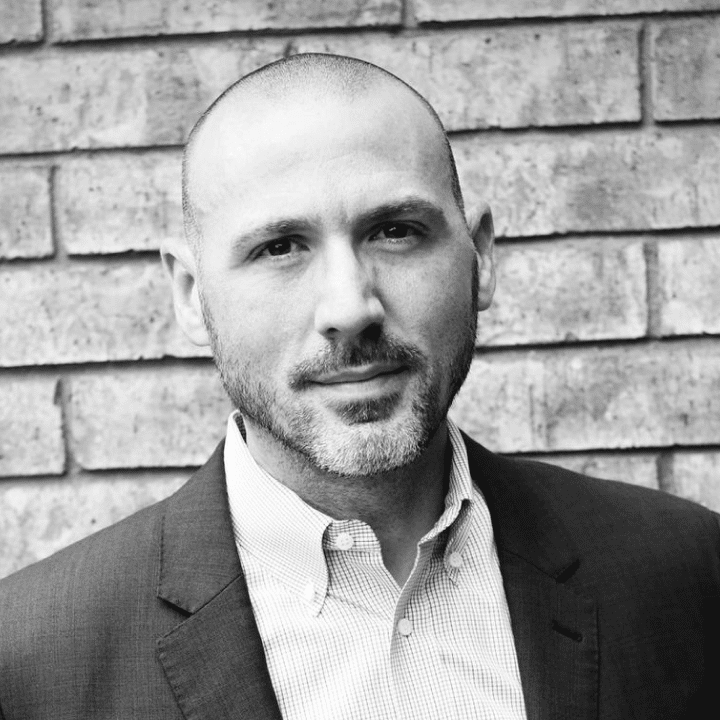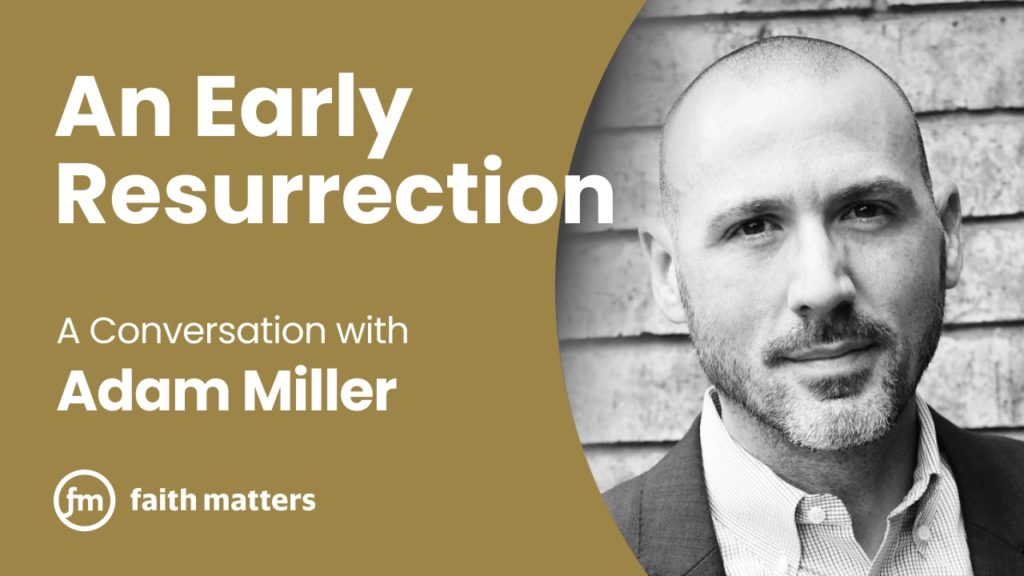*The following is taken from a chapter in an upcoming book Patrick Mason is writing for Faith Matters Publishing.*
Know ye not that I, the Lord your God, have created all men, and that I remember those who are upon the isles of the sea; and that I rule in the heavens above and in the earth beneath; and I bring forth my word unto the children of men, yea, even upon all the nations of the earth?
—2 Nephi 29:7
One of the courses I teach at Utah State University is “Religion, Violence, and Peace.” A major part of the course is introducing students to the variety of religious traditions around the world, taking a tour of Judaism, Christianity, Islam, Buddhism, Hinduism, and others. It’s great fun. This past semester I had a student who started college and showed up in my class only two or three days after returning from his mission. On the day we finished our unit on Buddhism, this student lingered after class, and I could tell he wanted to talk, so I invited him to join me on my walk back to my office.
“I really like everything we’ve been learning about Buddhism,” he said. “A lot of the concepts and insights really resonate with me. But I just spent two years telling everyone who would listen that the Church of Jesus Christ of Latter-day Saints is God’s one true church that they need to be baptized into. How can the church be true—which I believe it is—if I’m also discovering truth in Buddhism, which is so different from anything I’ve ever heard at church or taught as a missionary?”
This student’s penetrating question isn’t just a matter of whether he can appreciate things in Buddhism that harmonize with Latter-day Saint doctrine. His question goes deeper. What does it mean that in 1831 God declared that the Church of Christ (now Church of Jesus Christ of Latter-day Saints) was “the only true and living church upon the face of the whole earth, with which I, the Lord, am well pleased”? ((Doctrine and Covenants 1:30.)) Can Latter-day Saints claim to belong to God’s true church when we learn, in our encounters with other people and religions, that we’re a tiny minority and that God is present and working through other religions too?
The 0.2 Percent
I seriously doubt Joseph Smith ever met a Buddhist. Or a Hindu, Muslim, Jain, or Zoroastrian. Some religions, such as Pentecostalism and the Baháʼí Faith, didn’t even exist when the Prophet was still alive. In Joseph’s world, religious diversity meant Christian sectarianism. It was Methodists, Baptists, Presbyterians, Congregationalists, Campbellites, and Roman Catholics all vying for the mantle of being the true Christians, with the occasional universalist, Jew, or atheist thrown into the mix for variety. If one of the Restoration’s goals was to religiously unite the human family, it has failed spectacularly. Indeed, if anything, the spiritual cacophony that sent Joseph into the grove in 1820 has only intensified and grown louder in the ensuing two centuries.
In 2020, active members of the Church of Jesus Christ of Latter-day Saints constitute only 1/10th of one percent of the global population.((I divided the church membership of approximately 16,500,000 by the total world population of approximately 7,800,000,000, and assume (generously) a 50% activity rate.)) And because the growth rates for church membership and the total world population are roughly similar, we shouldn’t expect that percentage to increase significantly anytime soon. Since 1847, it has been easy for Latter-day Saints in Utah to have an outsized view of their place in the world, since many if not most of the people around them were also Latter-day Saints. However, as our people have become more “scattered” around the world—due to the combined forces of evangelization and migration—we have encountered the world’s staggering religious diversity, and our pronounced minority status, in ways that previous generations never did.
Our encounter with the larger world is forcing us to ask new, and challenging questions about our place in it. What does it mean that only 1/10th of one percent of the world’s population are members of “the only true and living church”? That means at least 99% of people around the world know little or nothing about Joseph Smith, let alone Russell M. Nelson. If the Church of Jesus Christ of Latter-day Saints is true, and if God wants all his children to be members of it, shouldn’t it be…bigger?
And what about all those really good people—our neighbors, coworkers, even family members—who are members of other religions, or no religion at all? Can divine love, favor, and revelation really be concentrated on just 0.1% of God’s children?
My head and heart both say no. The scriptures and prophets of the Church of Jesus Christ of Latter-day Saints do too.
Exclusivism and Relativism
Assertions about the truth of any particular religion typically fall into one of two camps: exclusivism and relativism.
The logic of exclusivism is something like, “If A and B are qualitatively different, then if A is true, B cannot also be true.” If the Notre Dame Fighting Irish are the true football team, as should be obvious to any right-thinking person, then the USC Trojans cannot be, no matter the sincere beliefs of their (clearly deluded) fans. On a slightly higher plane, this is the message of monotheism: there is only one true God, so all other gods are false. The prophet Jacob taught, “the way for man is narrow . . . and the keeper of the gate is the Holy One of Israel . . . and there is none other way save it be by the gate.”((2 Nephi 9:41. See also Matthew 7:13-14.)) Countless other similar statements similarly point to the exclusivist contention that there is only one God, one heaven, one truth, and one path. Anything else is a deviation at best and damnable deception at worst. Many billions of Christians, Jews, Muslims, Hindus, Buddhists, and others have lived and died secure in their respective beliefs that their way was the way.
If exclusivism posits only one legitimate path to one absolute truth, relativism allows for many ways. This view was famously captured by the well-known scholar of religion Huston Smith:
It is possible to climb life’s mountain from any side, but when the top is reached the trails converge.At base, in the foothills of theology, ritual, and organizational structure, the religions are distinct.Differences in culture, history, geography, and collective temperament all make for diverse starting points.Far from being deplorable, this is good; it adds richness to the totality of the human venture. . . .But beyond these differences, the same goal beckons.((Huston Smith, The World’s Religions (New York: HarperOne, 1991), 73.))
To relativists there are many paths up the mountain of truth; there may even be multiple peaks equally worth climbing. It doesn’t matter which path you choose, so long as it leads upward and you follow it to the best of your ability. The logic here is, “If A and B are qualitatively different, A and B can still both be equally true in different ways.” From a relativist standpoint, each religion is like a different facet of the same precious gem, each reflecting light in its own beautiful way.
The attractiveness of both positions is clear. Exclusivism offers certainty, relativism promises harmony and goodwill. But each has its shortcomings as well. Relativism negates the real differences between religions.((This is the basic premise of my favorite primer on comparative religions—Stephen Prothero, God Is Not One: The Eight Rival Religions that Run the World—and Why Their Differences Matter (New York: HarperOne, 2010).)) As much as I respect and have learned from Catholicism, for instance, there is a reason (actually, many reasons) I choose to be a Latter-day Saint. Exclusivism, on the other hand, might lead me to a position of contempt or condescending pity toward others.
I often hear Latter-day Saints decry the demerits of relativism, often with good reason. But we should also be keenly aware of the dangers of religious exclusivism, knowing what it’s like to be on the wrong end of it. In fact, more and more church members are increasingly uncomfortable with exclusivist language, which often has the ring of arrogance. According to one recent study, the statement “I stopped believing there was one true church” is the second most common reason people give for leaving the Church of Jesus Christ of Latter-day Saints.((Jana Riess, The Next Mormons: How Millennials Are Changing the LDS Church (New York: Oxford University Press, 2019), 224.))
Is there a way Latter-day Saints can authentically testify that they know the Restoration is true without sounding (or being) either naïve or intolerant? Is there a way my student can keep his testimony of the Restoration while still embracing the parts of Buddhism that speak to his soul—without being inconsistent or feeling like he’s somehow cheating?
Particularism and Pluralism
The answer, which is affirmative, is already present in our scriptures. Not even a year after the Church of Christ was established, Joseph Smith received a revelation on spiritual gifts. Prior to enumerating the various gifts God gives his children, the Lord makes this important statement:
For all have not every gift given unto them; for there are many gifts, and to every man [and woman] is given a gift by the Spirit of God. To some is given one, and to some is given another, that all may be profited thereby.
So every person on earth possesses at least one spiritual gift, but none possesses all the gifts. And the purpose of those gifts is to bless the lives of others—or, as the revelation says, “all these gifts come from God, for the benefit of the children of God.”((Doctrine and Covenants 46, quotes from verses 11-12, 26. See also 1 Corinthians 12:4-11; Moroni 10:8-18.)) The great range of human personalities, capacities, and talents is designed not to spark a spirit of competition or envy among God’s children. Rather, we are called to discern our own gifts and share them selflessly, and also to recognize and appreciate the gifts of others. Diversity is not a threat, but rather one of the great gifts present within God’s family.
What if we were to extend the principles in Section 46 to consider the ways in which God has graced not just individual women and men but also collective cultures and communities with particular gifts to be shared for the benefit of all? Might we see the ways in which God has endowed them with particular gifts and callings that are designed to bless the entire world?
According to our prophets, the answer is yes. In 1978, the First Presidency issued an official statement regarding “God’s love for all mankind.” President Spencer W. Kimball and his counselors affirmed that
…the great religious leaders of the world such as Mohammed, Confucius, and the Reformers, as well as philosophers including Socrates, Plato, and others, received a portion of God’s light. Moral truths were given to them by God to enlighten whole nations and bring a higher level of understanding to individuals.
While affirming that “the gospel of Jesus Christ, restored to his Church in our day,” is the best way to achieve “a mortal life of happiness and a fullness of joy forever,” the First Presidency testified that “God has given and will give to all people sufficient knowledge to help them on their way to eternal salvation, either in this life or in the life to come.”((Statement of the First Presidency Regarding God’s Love for All Mankind, quoted in Miranda Wilcox and John D. Young, eds., Standing Apart: Mormon Historical Consciousness and the Concept of Apostasy (New York: Oxford University Press, 2014), 343.))
This inspired statement does not claim that God has only sent light and knowledge to his children exclusively through the prophets of the Restoration and previous Judeo-Christian dispensations. Rather, he has revealed precious truths through all manner of religious leaders and philosophers on various continents and throughout history. God does this because he loves all his children, not just a select few. At the same time, however, the statement resists the impulse to equate or relativize all those different teachings. Yes, there is truth to be found among all the world’s cultures and religions, but there is still something unique about the gospel of Jesus Christ as restored in this dispensation and taught by the Church of Jesus Christ of Latter-day Saints.
This is a position I call particularism. Just as individuals are blessed with particular spiritual gifts, so too are groups. These gifts are given to particular people or communities for the intent of blessing all of God’s children. The differences among the many gifts are intentional and real, and should not only be tolerated but celebrated.
As Latter-day Saints, we need neither to retreat from our particular truth claims nor bludgeon others over the head with them. We can have confidence that we have been given talents that the Master wants us to use, not bury. At the same time, we can appreciate that he has bestowed special talents on his other servants as well, and also commanded them to multiply their gifts.((See Matthew 25:14-30.))
Throughout the scriptures, God often speaks of his work as occurring within a vineyard. Let’s allow God to diversify his holdings a bit and go beyond grapes to be the owner a large farm with a variety of different crops. Members of the Church of Jesus Christ of Latter-day Saints have been called to tend one set of crops on that sprawling farm, the whole of which is far too large for any one group to cultivate. Other religions and cultures have in turn been given stewardship over other plots of land. All the different sections of the farm are interdependent—if one suffers from blight or lack of tending, it can negatively affect surrounding plots. We should labor with all our might, mind, and strength in our particular corner of the farm, knowing that the harvest is absolutely essential and unique, while at the same time recognizing that our fellow laborers in other sections are doing equally good and valuable work.
There are some “crops”—faith, hope, love, service, family, care for the poor, the sanctity of life, religious freedom, and so forth—that are part of the “commons” that lie at the center of the farm, which are open to anyone. But the cultivation of many other particular crops seems to have been divvied out to different groups—not to hoard, but to steward and then share.
From my perspective evangelical Christians have cultivated the “grace” section; Buddhists have cultivated “meditation”; Jains have cultivated “nonviolence”; indigenous traditions have cultivated “Mother Earth”; and so forth. Of course, most gifts and stewardships can’t be reduced to one word or phrase, and some plots may even overlap. But the beauty and reality of this arrangement is that some groups simply do some things better than others. And that may be the best indicator of what a group’s (or person’s) particular spiritual gifts are—what they do well, what they feel a sense of calling or vocation toward, where they put their greatest energies, and what gives them the greatest joy and sense of connection to both God and their fellow humans.
So what “crops” have been uniquely assigned to Latter-day Saints to grow, cultivate, protect from harm, harvest, and distribute to all? I think they are fourfold:
- Restoration scripture (the Book of Mormon, Doctrine and Covenants, and Pearl of Great Price)
- Modern prophets and apostles beginning with Joseph Smith
- Aaronic and Melchizedek Priesthood
- Covenants and ordinances—especially those associated with the temple.
Other people have holy books, others have inspired leaders, others have spiritual power, and others have beautiful rituals. But no other group on the planet has been given stewardship over these particular four things—each of which, as we can testify, brings almost unspeakable light, power, love, truth, and goodness into people’s lives and into the world. As partakers and proclaimers of the Restoration, it is Latter-day Saints’ special calling to tend to and cultivate those four crops. Insofar as we do so, we can confidently testify that the Church of Jesus Christ of Latter-day Saints is true to the mission and stewardship that God has given it.
As fervent particularists, we can also be pluralists, affirming the many gifts that God has given us with while simultaneously embracing all he has given our sisters and brothers among every nation, kindred, tongue, people, and religion. A broader perspective on the wondrous work of God in the world allows us to recognize and celebrate the diversity he has created.
The Body of Christ
Having exhausted the agricultural metaphor, let me conclude with an anatomical one, compliments of the apostle Paul. Typically we think of the body of Christ as the church; indeed, that was Paul’s original usage and intent. But what if we consider the body of Christ to be all those bodies whom Christ loves and redeems—namely, the family of God. And what if we consider the parts of that greater body to be not individuals but groups—cultures, peoples, even religions. Paul’s metaphor then takes on different meaning and sharpens our understanding of particularism:
Indeed, the body does not consist of one member but of many. . . .If the whole body were an eye, where would the hearing be? If the whole body were hearing, where would the sense of smell be? But as it is, God arranged the members of the body, and each one of them, as he chose. . . .The eye cannot say to the hand, “I have no need of you,” nor again the head to the feet, “I have no need of you.”On the contrary, the members of the body that seem to be weaker are indispensable.((1 Corinthians 12:14-22 (NRSV).))
Healthy functioning of the body depends on an elegant and efficient division of specialized labor in the context of an interdependent system. That is to say, each body part has its own separate role to play. No matter how distinctive and essential each of those parts is, however, they can’t get full of themselves; no part of the body can survive without being connected to and integrated with all the others. Body parts can’t afford to be exclusivist or relativist—no single part has a fundamentally “true” function while the others are all false, nor can the parts pretend that they all do essentially the same thing. The eye is “true” when the eye does what the eye was designed to do. It would be false, however, if it were to stop functioning, pretend to be something else, try to exist on its own, or suppose that it is qualitatively superior to all the other parts because they don’t do what it does.
In the proper functioning of the body, for a part to play an absolutely essential function is not to say that it plays the only important or necessary function. The heart may beat true and uniquely provide blood and vital oxygen to the whole body. But try separating the heart from the nervous system, lungs, arteries and veins and even tiny capillaries, and see how far its exclusive truth takes it. In sum, the body operates on the principle of particularism. The corollary is also true: the heart must understand that even though it is not the only essential member, if it does not offer its gifts “whole-heartedly” to the rest of the parts, the body will not be healthy.
You can think about the Church of Jesus Christ of Latter-day Saints as whatever part of the body you want—the heart, the brain, the lungs, maybe the liver (thank you, Word of Wisdom). The important point is that the church is not the whole body—remember, it constitutes only 0.2% of its total mass. There are a lot of things that 0.2% cannot do. Take, for instance, the COVID-19 global pandemic. All the church’s faith, prayers, fasting, service, and dollars, however significant, were not enough on their own. In relation to the massive needs of the global body, our positive impact on public health, humanitarian relief, and welfare assistance was real but miniscule.
So while we can and must contribute to the alleviation of all kinds of suffering within the body, we must not and cannot forget our unique calling, which is the stewardship of the things that make us distinctive. Those are the particular things that give life and power to all the many other generally good things we do as part of the entire body, and the essential things that no other part of the body has been called to do.
Conclusion
Gifts become dangerous when they become mistaken for exclusive entitlements. To be grateful for gifts is to recognize they are not earned or deserved, but rather bestowals of grace from the Giver of all good things. Pride always lurks in the background, sometimes nearer than we want to admit. To help keep us humble, the Lord reminds us that even his most special gifts are not tokens of his exclusive favor.
Yes, Restoration scripture is irreplaceable. But we have no monopoly on the loquaciousness of God, whose children all around the world will produce (or perhaps have already produced) the scriptures containing the words he has spoken to them.((See 2 Nephi 29:12.)) Yes, we are special custodians of that unmatched second witness of Christ, the Book of Mormon. But condemnation hangs over our head should we neglect it.((See Doctrine and Covenants 84:57.))
Yes, God has specially set apart prophets and apostles for distinctive, foundational roles within the body of Christ, and yes, we are called to sustain them and hearken to their words. But God has also called other “holy men” and women to speak his words and do his will.((Doctrine and Covenants 49:8; see 1 Corinthians 12:22-29; Ephesians 2:20; Doctrine and Covenants 21:4-5.))
Yes, the priesthood is the power and authority of God delegated to his children on earth. But that priesthood can never be self-serving, “cannot be controlled nor handled only upon the principles of righteousness,” and only has any effect through the Christlike qualities of persuasion, longsuffering, gentleness, meekness, kindness, pure knowledge, and most of all love.((Doctrine and Covenants 121:36, 41-42.))
Yes, authorized priesthood ordinances from baptism to sealing are essential for the salvation and exaltation of God’s children. But the Restoration’s magnificent (if daunting) assignment of performing ordinances for all God’s family, living and dead, means that eventually every person will be baptized, every person will be endowed, every person will be sealed. The ordinances are like the vital organs in every human body—absolutely essential, absolutely special, and absolutely universal.
The “restoration of God’s people” is too much for 1/10th of one percent of God’s family to accomplish on our own.((2 Nephi 30:8.)) Thankfully, God has recruited a much bigger workforce and set them to work in other parts of the farm, some near and others distant from our immediate view.
That he has also called others to work, however, does not minimize the fact that he has called me and you to do this particular work, in this particular place, at this particular time, among this particular (and peculiar) people. The particular work assigned to the stewardship of the Church of Jesus Christ of Latter-day Saints is essential, it is living, and it is true. The Lord invites us to “lay hold upon every good thing” cultivated in every part of the garden.((Moroni 7:19.)) But God also needs us to be true to our promises to put our whole hearts into working this patch, so that all his other children can eat of its truly good and irreplaceable fruits.



